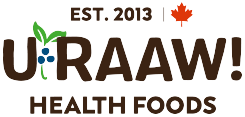Pasteurized vs. Unpasteurized Organic Nuts & Seeds
Our customers often ask us which of our organic nuts & seeds are pasteurized versus unpasteurized. While we would love for all of our organic products to be unpasteurized, unfortunately, that is not always possible.
That being said, we make it a priority to source as many unpasteurized nuts as we can. Unpasteurized nuts retain their full nutrient profile, natural enzymes, and rich flavor.
Many raw food advocates believe these qualities contribute to better digestion, improved nutrient absorption, and overall better health.
At U-RAAW!, we are committed to offering unpasteurized options whenever possible. We proudly carry the following nuts and seeds in their natural, raw, and unpasteurized form:
-
Organic Pecans
-
Organic Brazil Nuts
-
Organic European Almonds
-
Organic Hazelnuts
-
Organic Styrian Pumpkin Seeds
- Organic Sunflower Seeds
What is Pasteurization and Why is it Done?
Pasteurization is a food safety process designed to eliminate harmful bacteria that may be present in raw products, including nuts. In the United States, regulations set by the USDA and FDA require certain nuts—most notably almonds—to undergo pasteurization following Salmonella outbreaks in the early 2000s. This mandate aims to reduce contamination risks and enhance consumer safety.
Although pasteurization is implemented for health reasons, it can alter the natural characteristics of nuts. Some methods involve exposure to high heat or chemical treatments, which may impact their taste, texture, and nutrient density. As a result, many health-conscious individuals and raw food enthusiasts prefer unpasteurized nuts, as they retain their original enzyme content and nutritional integrity.
Conventional vs. Organic Pasteurization
The good news is that all of the nuts and seeds that we carry that are pasteurized use much less invasive methods than those used for conventional nuts and seeds.
Here are the key differences between conventional and organic pasteurization methods:
Conventional Pasteurization Methods:
-
Propylene Oxide (PPO) Treatment: The most common method used for conventional almonds, PPO is a chemical fumigation process that eliminates bacteria. However, PPO is a known carcinogen and is banned in many countries, including Canada and the European Union.
-
Steam Pasteurization: A high-temperature steam process that kills bacteria without using chemicals. However, it can slightly alter the texture and nutrient profile of the nuts.
Organic Pasteurization Methods:
-
Steam Pasteurization Only: Organic nuts cannot be treated with PPO and are instead pasteurized using steam. This is considered a safer and more natural process, though it still exposes the nuts to high heat.
-
Truly Raw Nuts: Some organic nuts, especially those sourced from outside the U.S. or from specific producers, may remain unpasteurized, preserving their raw integrity.
Conclusion
While pasteurization was introduced as a safety measure, not all methods are equal. Conventional pasteurization often involves chemicals like PPO, whereas organic nuts are only steam-treated or left raw when possible. Choosing unpasteurized, organic nuts ensures the highest quality, best flavor, and most complete nutrient profile.
If you’re looking for truly raw, unpasteurized nuts and seeds, check out our selection at U-RAAW!—because nature knows best!


